The Importance Of First Aid Knowledge In Commercial Kitchen And Home Kitchen
The Importance of First Aid Knowledge in Commercial and Home Kitchens
The kitchen is often the heart of a home and the backbone of a commercial establishment. However, it can also be a hub of potential hazards, with sharp knives, hot surfaces, and electrical appliances increasing the risk of injuries. First aid knowledge is essential in both commercial and home kitchens, ensuring safety, quick response to accidents, and fostering a secure environment for families and teams.
Preventing and Addressing Common Kitchen Injuries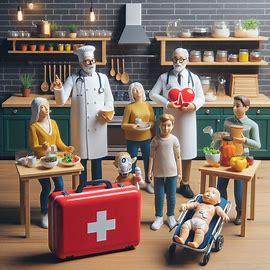
Injuries in kitchens can range from minor cuts and burns to more serious incidents like deep lacerations or severe scalding. First aid knowledge equips individuals with the ability to:
- Treat Cuts and Wounds: Proper cleaning, dressing, and bandaging can prevent infections and promote healing. Knowing when a wound requires medical attention is equally important.
- Respond to Burns and Scalds: Immediate treatment with cool water and appropriate coverings can minimize tissue damage and pain.
- Handle Choking Incidents: With food being a primary cause of choking, understanding the Heimlich maneuver can be life-saving.
- Manage Allergic Reactions: Recognizing the signs of a food allergy and using an EpiPen if necessary can prevent serious complications.
- Address Electrical Injuries: With so many electrical appliances in use, it’s crucial to know how to safely disconnect power and treat shocks.
First Aid in the Home Kitchen: A Family Priority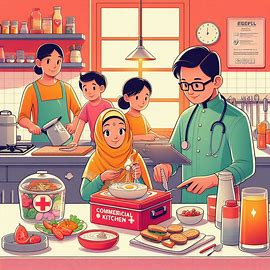
The home kitchen is often a place for family bonding, with shared meals and cooking sessions bringing loved ones together. Incorporating first aid knowledge into this environment benefits the entire household by:
- Promoting Awareness Among Family Members: Teaching children basic first aid skills, such as treating minor burns or understanding the dangers of sharp tools, empowers them to act responsibly.
- Building Confidence in Family Cooking Activities: Parents can encourage children to participate in cooking without fear, knowing they can manage minor accidents if they occur.
- Enhancing Communication and Teamwork: When everyone understands basic first aid, family members can work together calmly and efficiently during emergencies.
First Aid in Commercial Kitchens: A Professional Requirement
Commercial kitchens are fast-paced and high-pressure environments where safety is paramount.
In these settings, first aid knowledge is not just beneficial but often a legal requirement. Benefits include:
Maintaining Employee Safety: Providing first aid training ensures that staff can address injuries quickly, reducing downtime and promoting a healthier work environment.
- Complying with Regulations: Many jurisdictions mandate first aid training for employees in food service, highlighting its importance.
- Boosting Team Morale: Workers feel more secure knowing their colleagues are equipped to handle emergencies, fostering a supportive workplace culture.
Creating a Safety Culture at Home and Work
Incorporating first aid knowledge into both home and commercial kitchens can significantly reduce the risk of severe outcomes from accidents. Families can make it a fun and educational activity by:
- Hosting first aid workshops at home, involving kids in interactive and age-appropriate lessons.
- Stocking a well-equipped first aid kit and teaching everyone how to use its contents.
- Practicing safety drills for choking or burns to ensure everyone knows their role.
Similarly, commercial kitchens can prioritize safety by:
- Scheduling regular first aid training and refresher courses for staff.
- Encouraging open communication about safety concerns and near-misses.
- Establishing clear protocols for handling emergencies.
Conclusion
Whether at home or in a commercial setting, the importance of first aid knowledge in kitchens cannot be overstated. It’s a vital skill that enhances safety, fosters confidence, and promotes a culture of care and responsibility. For families, it’s an opportunity to bond while learning valuable life skills. In professional kitchens, it ensures the well-being of staff and the smooth running of operations. By investing in first aid education, we create environments where everyone can cook, eat, and thrive—safely and happily.
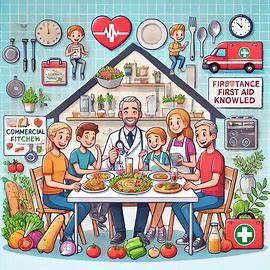
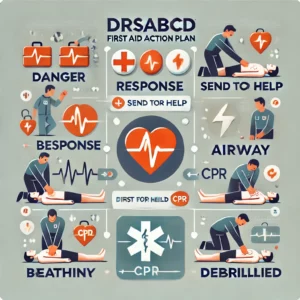
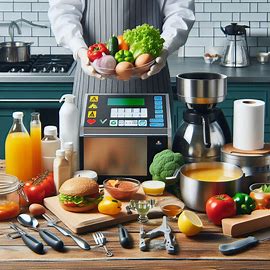
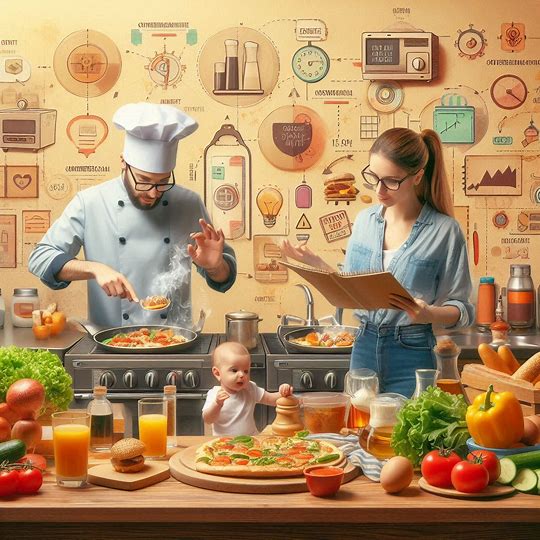








1 comment